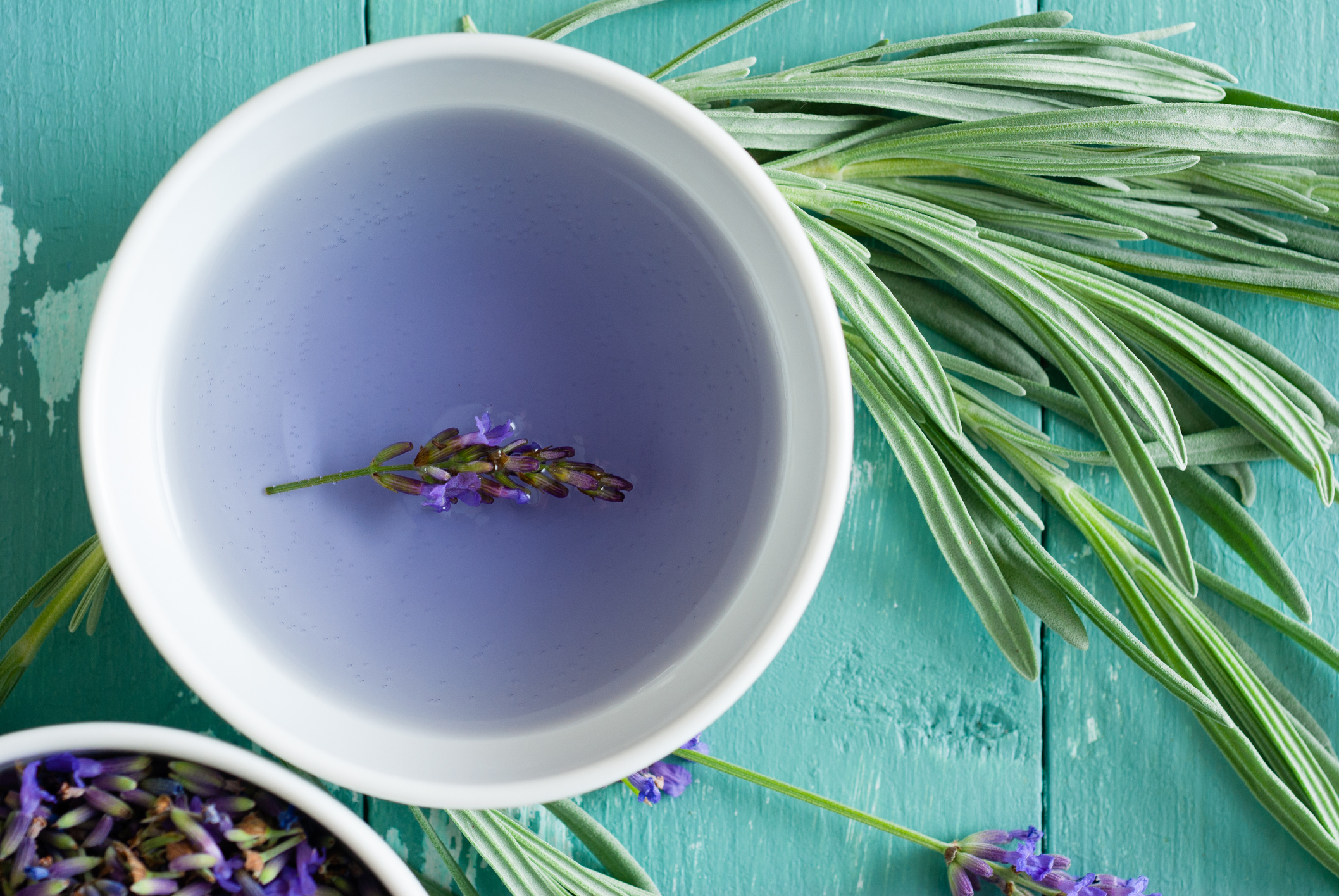Get Easy Health Digest™ in your inbox and don’t miss a thing when you subscribe today. Plus, get the free bonus report, Mother Nature’s Tips, Tricks and Remedies for Cholesterol, Blood Pressure & Blood Sugar as my way of saying welcome to the community!
How to brew up the many benefits of lavender tea

The last thing I do before turning in each night is fill my diffuser with water and add a few drops of lavender essential oil. The next morning, I often can’t remember how or when I drifted off into a sound sleep.
Lavender has a long history as a relaxing herb.
Its name comes from the Latin “lavare,” meaning “to wash.” The Romans used Lavender to scent their baths, beds, clothes and even hair.
But did you know that you can drink lavender?
Lavender tea, that is.
Hold a steaming cup in your hand and breathe deep. You’ll feel relaxed in no time.
Drinking lavender tea is good for more than sleep and relaxation. Studies have revealed some of the other positive effects it has on our health.
Lavender tea may reduce anxiety
If you’re finding it hard to unwind at the end of the day because your mind is racing with all that’s going on in the world today, a cup of lavender tea may be just what you need.
Brewing lavender bulbs into a tea helps release its oils and aroma. Lavender tea boosts the production of dopamine and reduces the stress hormone known as cortisol (a forgotten trigger for increasing blood sugar problems), and research shows that drinking lavender oil preparations can improve the restlessness that often accompanies anxiety.
Lavender promotes deeper sleep
In a Wesleyan University study involving 16 men and 15 women, the smell of lavender oil increased the percentage of deep, slow-wave sleep for all subjects. All 31 subjects reported feeling more rested and less tired in the morning.
But the gift of sleep you get from lavender tea is also likely due to three nutrients it contains: zinc, potassium and magnesium. These minerals help relax muscles and tension in the body.
When combined with chamomile, lavender makes an especially soothing and calming nighttime tea.
Lavender tea can aid digestion
The anti-inflammatory properties of lavender help soothe irritated stomach muscles, eliminating stomach pain. Also, the fragrance of lavender stimulates the production of bile, which helps the digestive system break down foods more efficiently.
Lavender contains high concentrations of vitamin C, vitamin A, calcium and amino acids that help to boost the immune system as well.
How to brew lavender tea, and a few precautions
To make yourself a cup of lavender tea in the evening, simply steep about a tablespoon of dried lavender buds in 8 ounces of boiling water for 5-10 minutes. Of course, the longer you steep, the stronger the flavor will be. The flavor of lavender is complemented by berries and mint.
It’s best to use lavender buds from a reliable source that grows them specifically for tea. Do not use lavender from your garden if there is any chance of pesticide contamination.
Some websites recommend brewing lavender tea using lavender essential oil. This is not a good idea.
Essential oils should only be consumed under the guidance of a licensed aromatherapist to avoid negative side effects.
Lavender essential oils are extremely concentrated and can contain multiple pounds of flower buds in just a single drop. Stick to brewing lavender tea using dried or fresh flower buds.
Editor’s note: Did you know that when you take your body from acid to alkaline you can boost your energy, lose weight, soothe digestion, avoid illness and achieve wellness? Click here to discover The Alkaline Secret to Ultimate Vitality and revive your life today!
Sources:
- Lavender Tea: Benefits, Recipe & Side Effects — organicfacts.net
- Anti-inflammatory activity of linalool and linalyl acetate constituents of essential oils — Science Direct
- The effect of lavender herbal tea on the anxiety and depression of the elderly: A randomized clinical trial — Science Direct
- An olfactory stimulus modifies nighttime sleep in young men and women — pubmed.gov
- Lavender Tea Health Benefits, Side Effects, and How to Brew — cupandleaf.com














